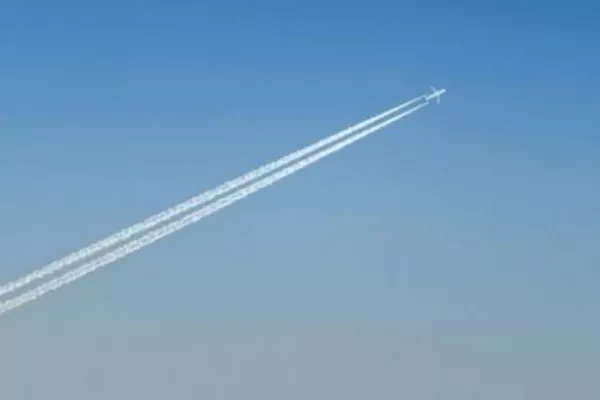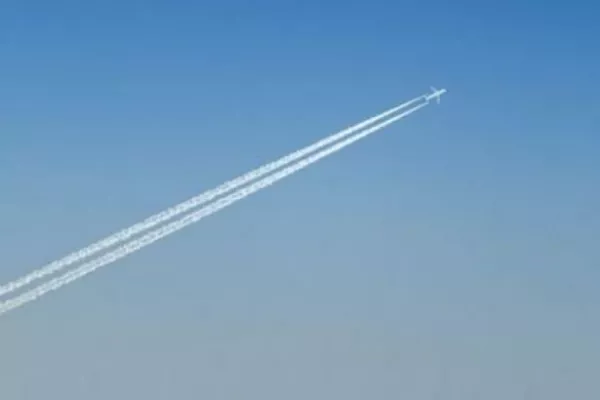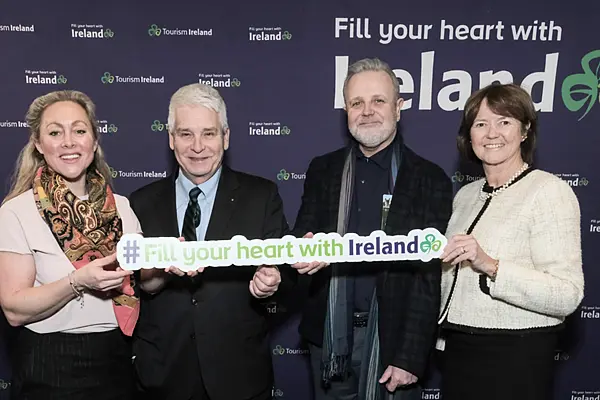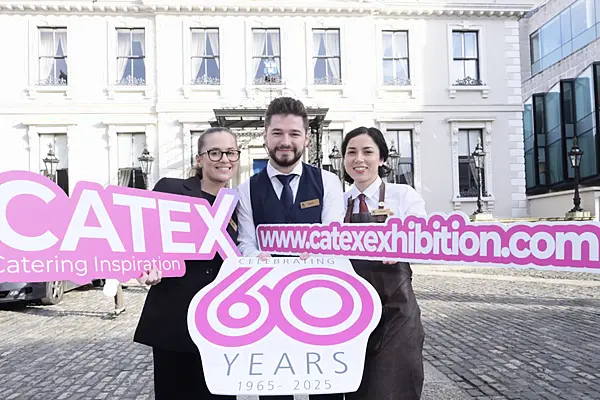Hospitality Ireland presents a round-up of global airline, aviation and travel news.
Minsk To Target EU, UK Air Carriers After Sanctions On Belarusian Air Industry
The Belarusian Foreign Ministry on Monday December 6 said Minsk would retaliate to sanctions on its aviation industry with similar measures against air carriers from the European Union and the United Kingdom.
The EU sanctioned Belarusian state-run airline Belavia last week, accusing it of flying in migrants as a tactic to destabilise European states, punitive measures that were coordinated with Washington.
The ministry also said it would ban imports of certain goods from countries that impose anti-Belarus sanctions, without giving further details on the goods in question.
European Regulators Propose Check For Anti-Lightning Flaw On Some A350 Jets
European regulators have issued a preliminary warning that patches of lightning protection may have been wrongly fitted on over a dozen Airbus A350 jets, while Delta Air Lines has joined a list of carriers facing "paint issues".
The proposed safety warning marks the first time manufacturing has come under regulators' spotlight amid a growing commercial and industrial headache over flaws on the skin of the jets, which Airbus insists are safe to fly.
The European Union Aviation Safety Agency (EASA) said in a proposed airworthiness directive that Expanded Copper Foil (ECF), designed to safely disperse lightning strikes, may not have been installed properly on the wing covers of 13 jets.
If a cocktail of factors comes together - including an adjacent fastener also being incorrectly installed - then a heavy lightning strike in the same zone could lead to fuel vapour igniting and "consequent loss" of the jet, EASA said.
The proposed directive calls for gradual inspections and where necessary repairs, enforcing a bulletin from Airbus, but does not call for any of the 13 planes to be grounded.
An Airbus spokesperson said the draft directive is a "normal part of the continued airworthiness process".
The call for checks comes as Airbus is locked in a dispute with the biggest A350 buyer, Qatar Airways, over what Airbus has called a "surface paint" issue and the airline describes as problems under the paint, affecting the ECF and composite shell.
EASA has said it has found no evidence of any airworthiness problem, while Qatar Airways says this has yet to be proven. It has grounded 20 of its 53 A350s as skin damage appears, saying it is acting on the orders of its own regulator.
The row widened last week when documents seen by Reuters revealed that at least five other airlines had complained about paint or ECF flaws since late 2016. Airbus has until recently suggested the issue focused only on Qatar Airways.
Now a further airline, Delta, has found problems with at least one aircraft, industry sources said.
Delta declined to comment on specific jets but said for the first time that it had seen problems on a limited scale.
"We have not yet experienced any significant paint issues on our A350 aircraft," a spokesperson said, adding it was in discussions with Airbus on the issue.
An Airbus spokesperson said it understands the cause of the issue and is working with customers to provide enhancements.
Manufacturing problems first emerged internally in 2019 when Finnair engineers warned Airbus that the ECF protection was detaching from the wingtips of one A350 because of missing resin, according to the documents seen by Reuters.
Airbus last week confirmed the Finnair manufacturing incident and said it was an isolated production issue that had been resolved. It also confirmed a Reuters report that it was considering changing the design of the lightning protection.
It was not immediately clear whether the "production quality issues" on 13 different jets covered by EASA's draft directive were similar to those reported by Finnair previously.
The 13 A350s were delivered between 2016 and 2020 and represent just 3% of the fleet, but are operated by 10 airlines or 28% of the number of carriers currently flying the long-haul jet, according to Airbus data and online database Airfleets.
CDC Urges Americans To Avoid Travel To France, Jordan Over COVID-19 Concerns
The U.S. Centers for Disease Control and Prevention (CDC) on Monday December 6 advised Americans against travel to France, Jordan, Portugal, and Tanzania, citing COVID-19 concerns.
The CDC now lists 83 destinations at "Level 4: Very High" classification and also on Monday December 6 added Andorra, Cyprus and Liechtenstein to the highest travel advisory level.
France said Monday December 6 it would close nightclubs ahead of Christmas and tighten social distancing measures in response to the emergent Omicron variant of the coronavirus, but that there was no need for new lockdowns or curfews.
Prime Minister Jean Castex said a fifth wave of the pandemic was surging, but with 52 million people now vaccinated - nearly 90% of those eligible - the situation was better than in previous outbreaks.
The United States imposed new rules, effective Monday, requiring international air travelers arriving in the United States to obtain a negative COVID-19 test within one day of travel.
Under the prior rules, vaccinated international air travelers could present a negative test result obtained within three days of their day of departure.
Some airline officials told Reuters there is a three-day grace period to allow for some travelers to return to the United States with tests taken outside of the one-day window.
A CDC spokeswoman declined to confirm that but said "CDC is exercising some enforcement discretion as this requirement is put in place."
Effective Nov. 29, the White House barred nearly all foreign nationals from entering the United States from eight southern African countries over fears of the spread of the Omicron variant, but has not extended those travel restrictions to other countries where the new variant has been discovered.
France said Monday December 6 it has now identified 25 positive cases of the Omicron variant.
White House spokeswoman Jen Psaki said Monday December 6 that the African travel restrictions were "being evaluated and discussed on a daily basis."
FACTBOX-How Cruises Are Trying To Keep U.S. Passengers Safe From COVID-19
Since U.S. cruises resumed in June, travel and tourism operators have enacted vaccine and testing requirements to avoid disruptions that cost them millions of dollars for much of the pandemic.
Even with these protocols, at least 17 people tested positive for COVID-19 on a Norwegian Cruise Line Holdings Ltd ship that disembarked in New Orleans recently, highlighting the challenges in curbing the spread of COVID-19 in confined spaces. One member of the crew has a suspected case of the Omicron variant.
To be considered fully vaccinated, all the cruise lines require the final vaccine dose to be administered 14 days before the start of the cruise. All the cruise lines below require crew to be vaccinated.
Here are their policies:
* Norwegian Cruise Line has a 100% vaccination policy, meaning children under 5 who are not yet eligible for a vaccine are not permitted on cruises.
Norwegian tests its passengers for COVID at the port before they board.
* Major Carnival Corp and Royal Caribbean Group brands require most passengers age 12 and older to be fully vaccinated but the companies do make some exceptions. Unvaccinated children under the age 5 can cruise on Carnival's ships.
Passengers must present a negative COVID test taken no more than two days before boarding. Royal Caribbean accepts antigen tests.
* Walt Disney Co's Disney Cruise Line requires all passengers eligible for vaccines in the United States to be fully vaccinated. Starting Jan. 13, all guests ages five and up will need to be vaccinated.
Unvaccinated passengers must show a negative COVID-19 test taken between three days and 24 hours before their sail date. Rapid antigen tests are not accepted.
Everyone is tested by Disney Cruise Line at the terminal before boarding, meaning unvaccinated passengers are tested twice.
HAWAIIAN AIRLINES CEO SAYS INTERNATIONAL GOVT REACTION TO OMICRON VARIANT IS A 'SETBACK' TO TRAVEL RECOVERY
HAWAIIAN AIRLINES CEO SAYS EARLY BOOKINGS ON SYDNEY-HONOLULU ROUTE STARTING NEXT WEEK 'ENCOURAGING' BUT PLANES WILL NOT BE FULL ON FIRST FLIGHTS
Hawaiian Airlines CEO Says Omicron Variant Has Pushed Back Travel Recovery
The reaction by international governments to the Omicron variant of COVID-19 has pushed back the timing a travel recovery, the chief executive of Hawaiian Airlines said on Tuesday December 7.
"It would be naive to see we didn't take a setback as policymakers reacted very quickly to the Omicron variant," Hawaiian Airlines CEO Peter Ingram said at a CAPA Centre for Aviation event.
"We are going to have to see what develops in this space in the days ahead."
Before the Omicron variant hit there were encouraging signs that travel restrictions in key markets like Japan, South Korea, Australia and New Zealand were beginning to ease, he said.
International arrivals to Hawaii are running at around 5% of pre-pandemic levels, Ingram said.
BRIEF-Scoot CEO Says Omicron Variant Has Led Mostly To Pause In Travel Re-Openings In Asia, Backward Steps Limited
* SCOOT CEO SAYS BACK TO 26% OF PRE-COVID CAPACITY
* SCOOT CEO SAYS OMICRON VARIANT HAS LED MOSTLY TO PAUSE IN TRAVEL RE-OPENINGS IN ASIA, BACKWARD STEPS LIMITED
Air New Zealand Could Grow Domestic Business by 20%-30% - CEO
Air New Zealand Ltd has the potential to grow its domestic business by 20%-30% from pre-pandemic levels over the next few years, its chief executive said on Tuesday December 7.
"We've got a terrific domestic business here in Air New Zealand and we see an opportunity to grow that more," Air New Zealand Chief Executive Greg Foran said at a CAPA Centre for Aviation event.
He said the airline's domestic capacity, now running at about 40% of pre-COVID levels, should begin to recover starting next week as travel curbs on its biggest city, Auckland, are eased.
Before Auckland was locked down over an outbreak of the Delta variant, capacity had returned to 90% of pre-COVID levels.
New Zealand's international borders remain closed and the country will require travellers to isolate at home or a hotel for seven days on arrival when the country opens to foreigners on April 30.
Asia Airlines Hope Omicron Setback Will Be Short-Lived
A nascent recovery in Asia-Pacific international travel demand has been set back by the Omicron variant as governments tighten rules, but airline bosses say they hope any backward moves will be short-lived.
International passenger traffic in Asia-Pacific was at just 5.4% of pre-pandemic levels in October, the lowest of any region globally, but some border rules were relaxed in Australia, Japan, Thailand, Singapore in November before the Omicron variant's discovery late in the month.
"We were seeing accelerating openings until Omicron," Campbell Wilson, chief executive of Singapore Airlines budget offshoot Scoot said at a CAPA Centre for Aviation event on Tuesday December 7.
"We have seen basically a pause since then," he said. "We haven't seen a lot of retrograde steps, though there have been some exceptions."
Airlines have blamed a patchwork of travel rules for depressed international travel demand, which is critical for their return to profit, and Omicron appears to be worsening that problem.
Japan has banned foreigners, the United States is requiring a COVID-19 test 24 hours before flying and travellers to Singapore now must be tested daily for seven days after arrival.
The Omicrom variant's appearance follows a downturn in travel after the Delta variant emerged in India and spread globally, but vaccination rates have since risen and health experts are gauging whether the new variant causes as severe illness as other variants.
"We still haven't figured out whether this is a spanner in the works or a fly in the ointment," Association of Asia Pacific Airlines Director General Subhas Menon said of Omicron. "From what we see now it looks more like a fly in the ointment that is still good for using."
Traveller confidence tends to be closely linked to government announcements, said Sue Carter, head of APAC at booking technology firm Travelport. "We have seen some searches go down week on week," she said. Omicron is also leading to scheduling headaches for airlines trying to adjust to changing requirements. In Australia, fully vaccinated travellers to Sydney and Melbourne must isolate at their home or a hotel for 72 hours after arrival because of the Omicron variant.
That compares with an earlier policy of no isolation, which had led Hawaiian Airlines to add five weekly Honolulu-Sydney flights starting this month, rather than an initial plan for three, its chief executive Peter Ingram said.
"I will tell you the airplanes are not going to be full on the very early days," he said of the route. "But we are seeing pretty good bookings over the holiday period into January. So we think it is it is going to recover."
Qantas Airways Chief Executive Alan Joyce said his hope was that once more was known about Omicron, the 72-hour isolation requirement would be removed.
News by Reuters, edited by Hospitality Ireland. Click subscribe to sign up for the Hospitality Ireland print edition.








